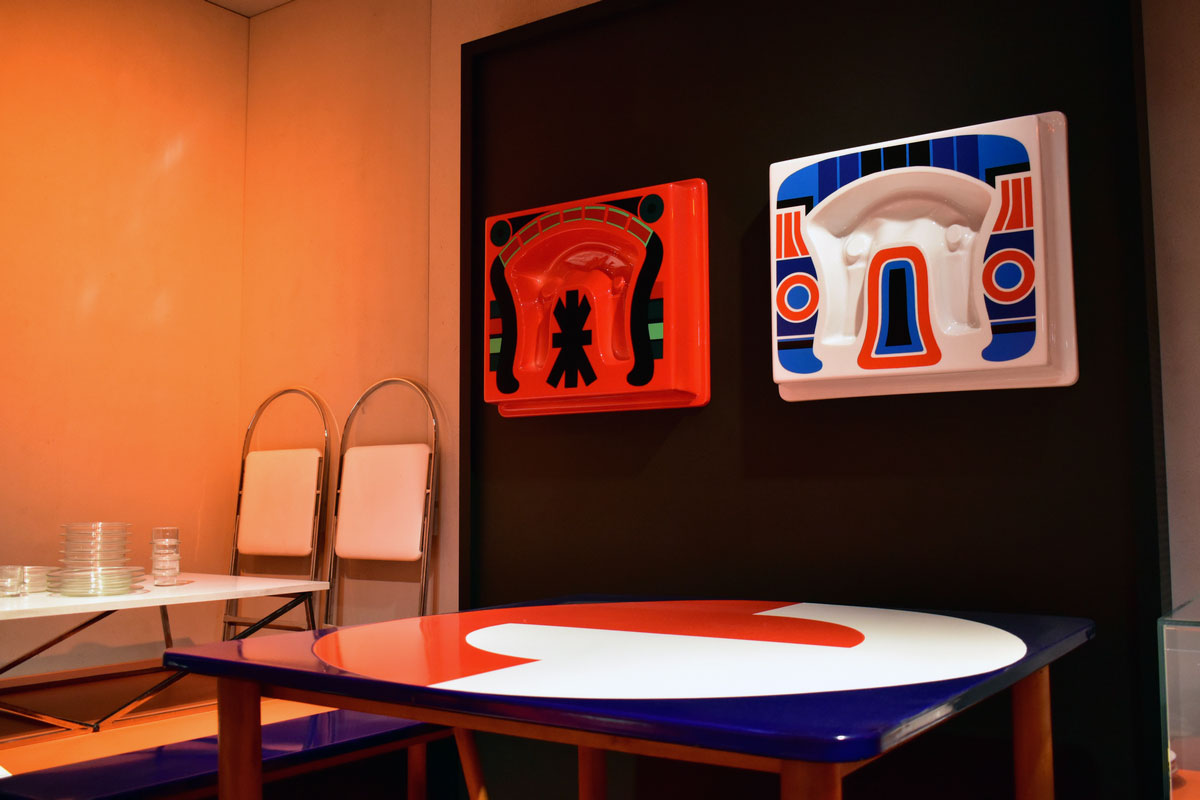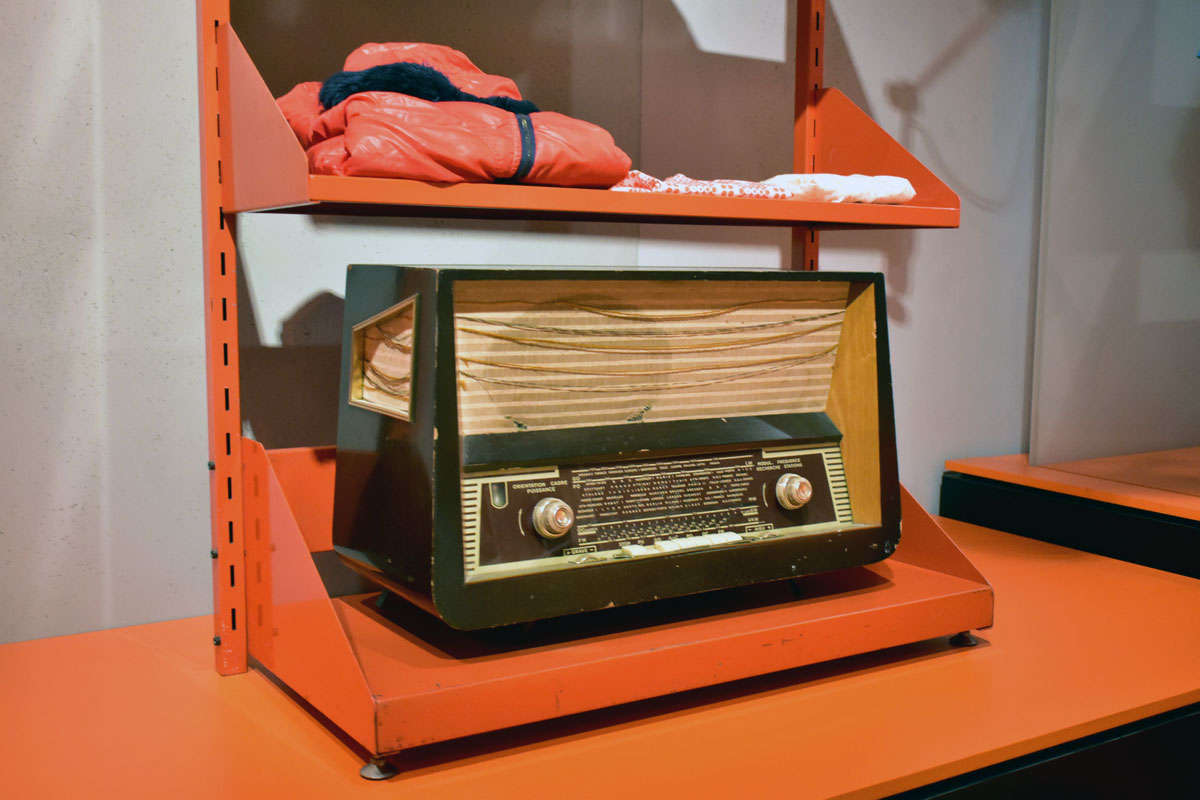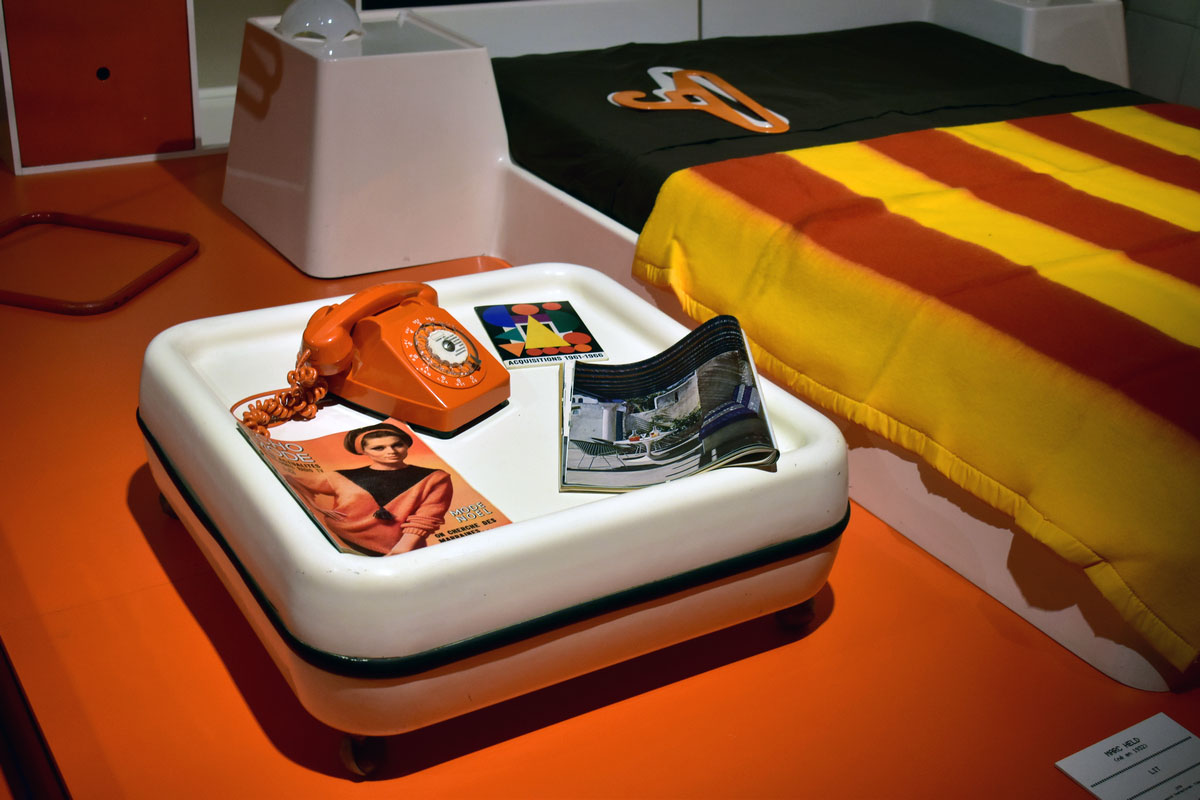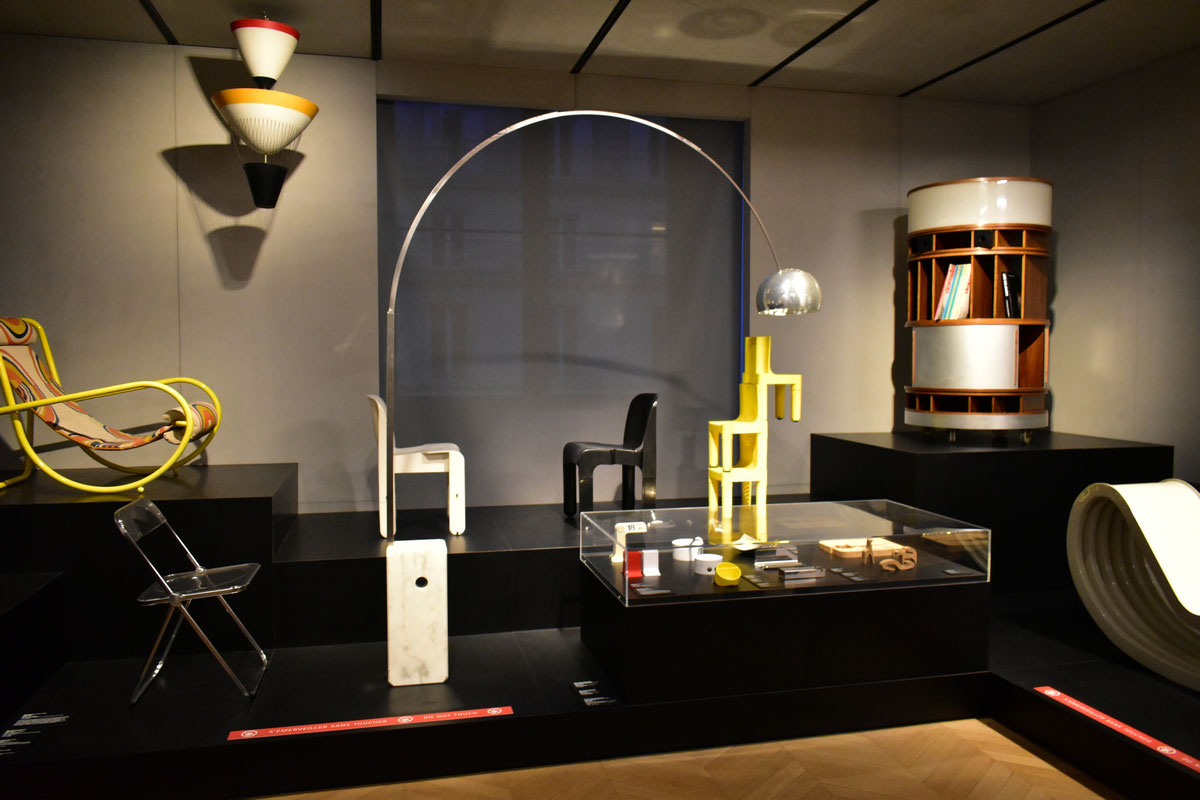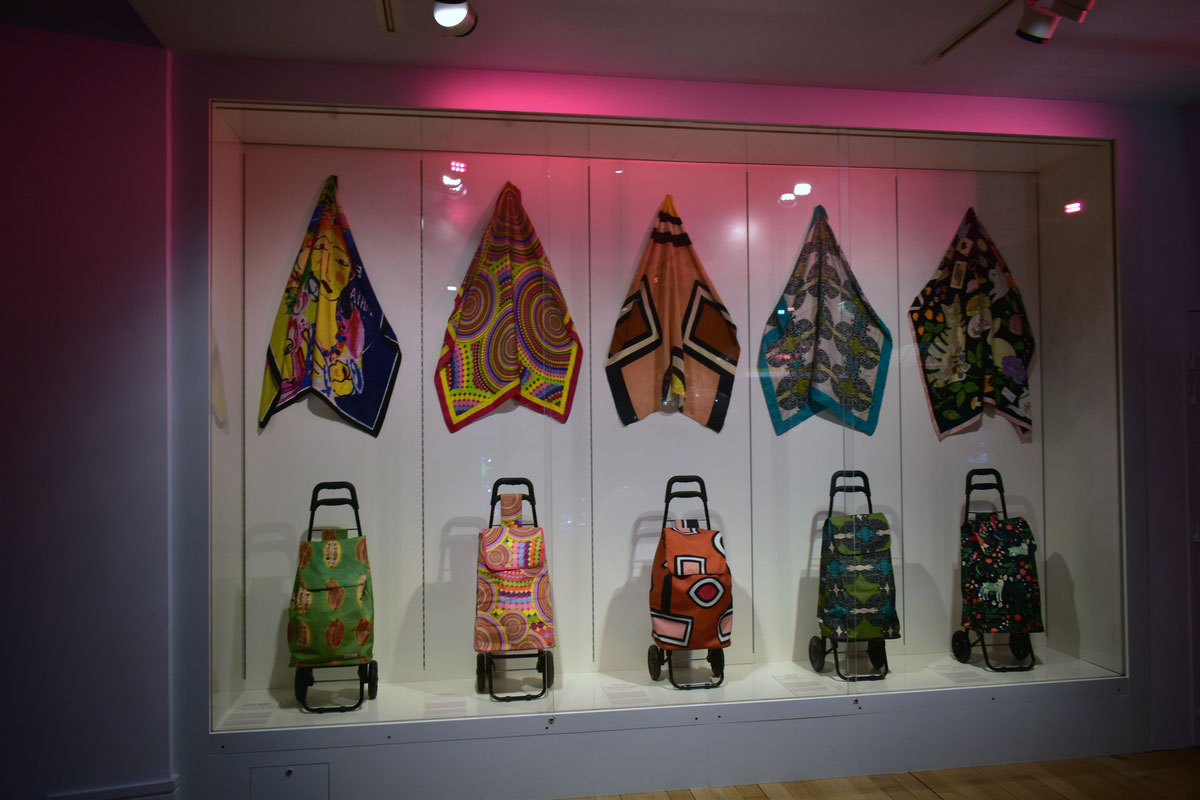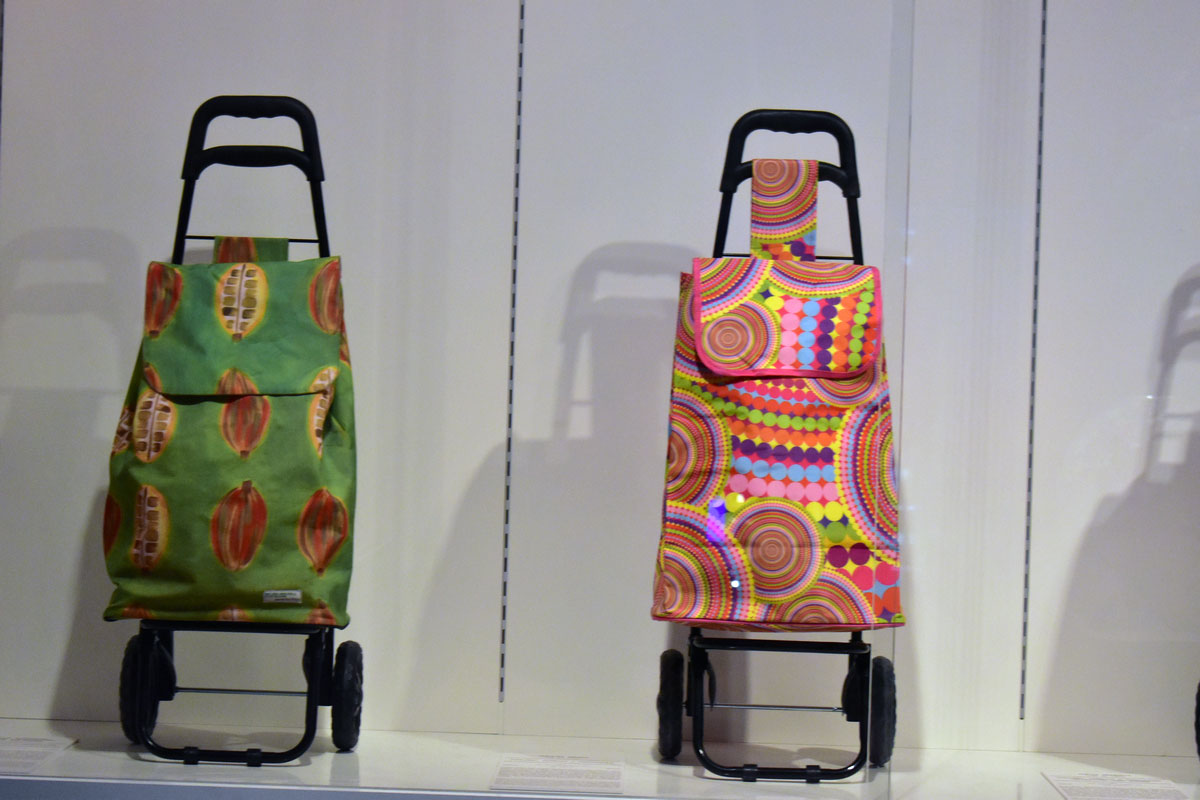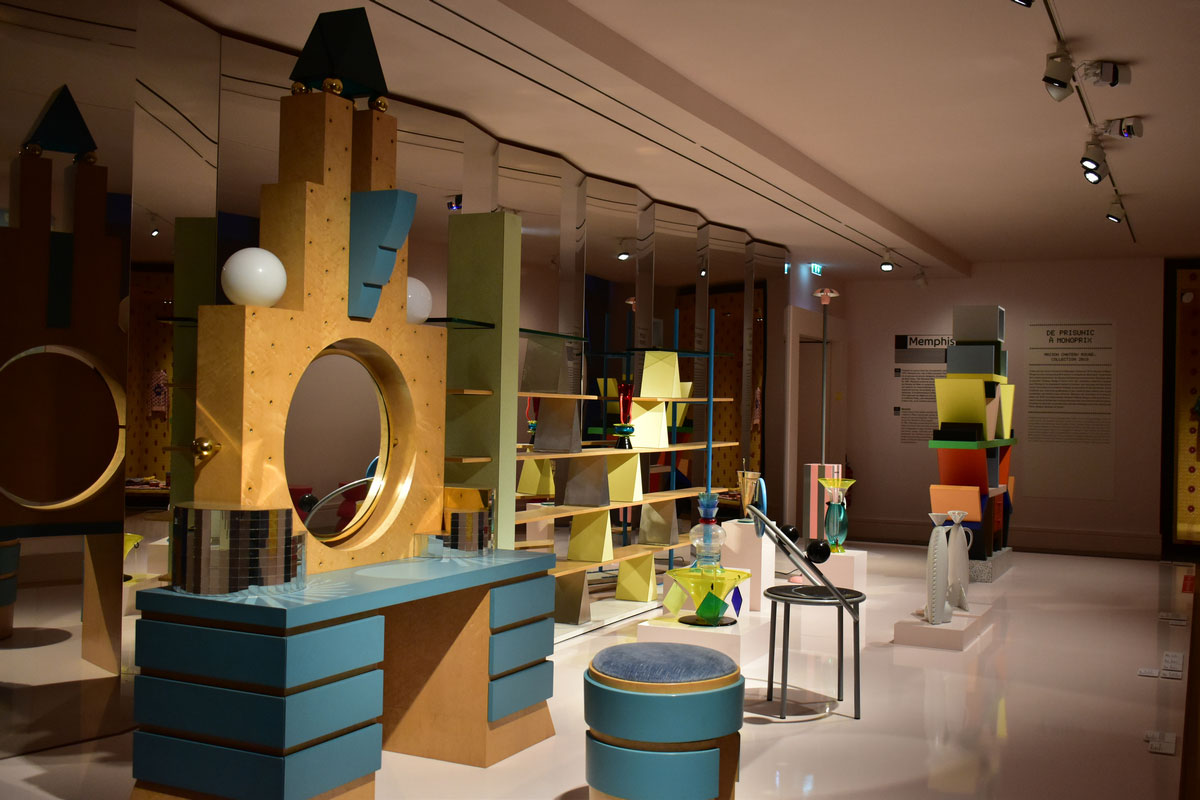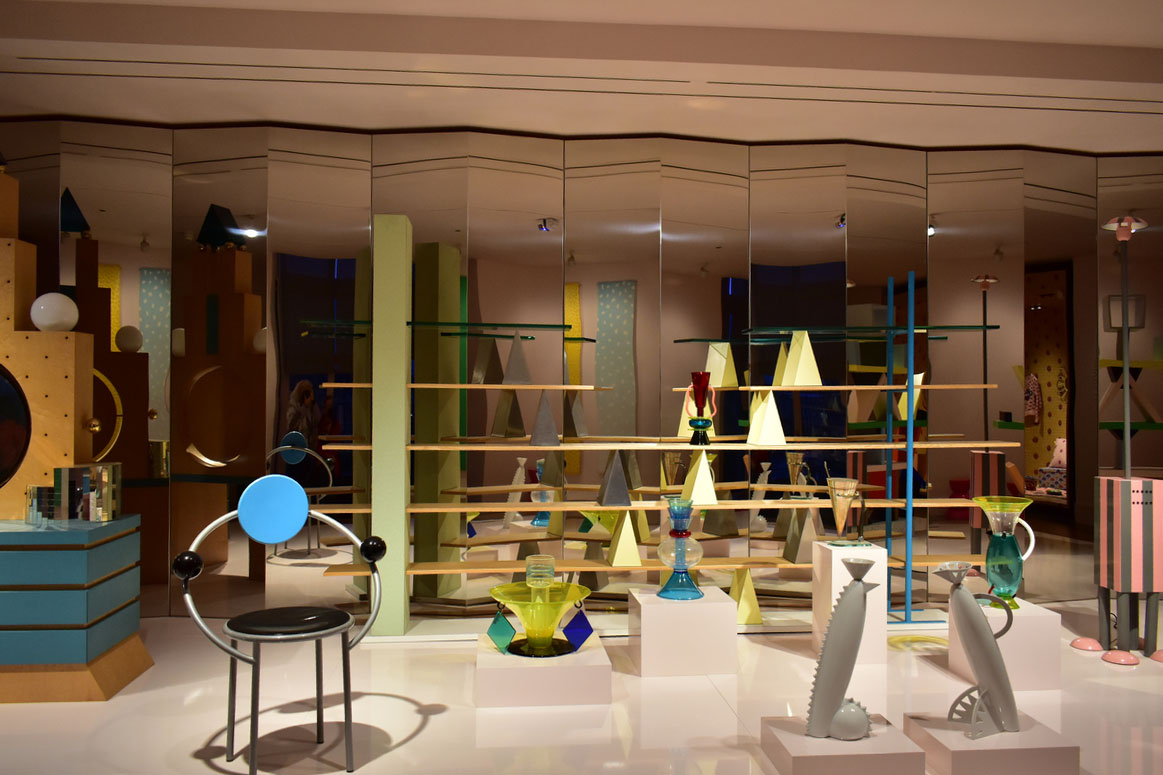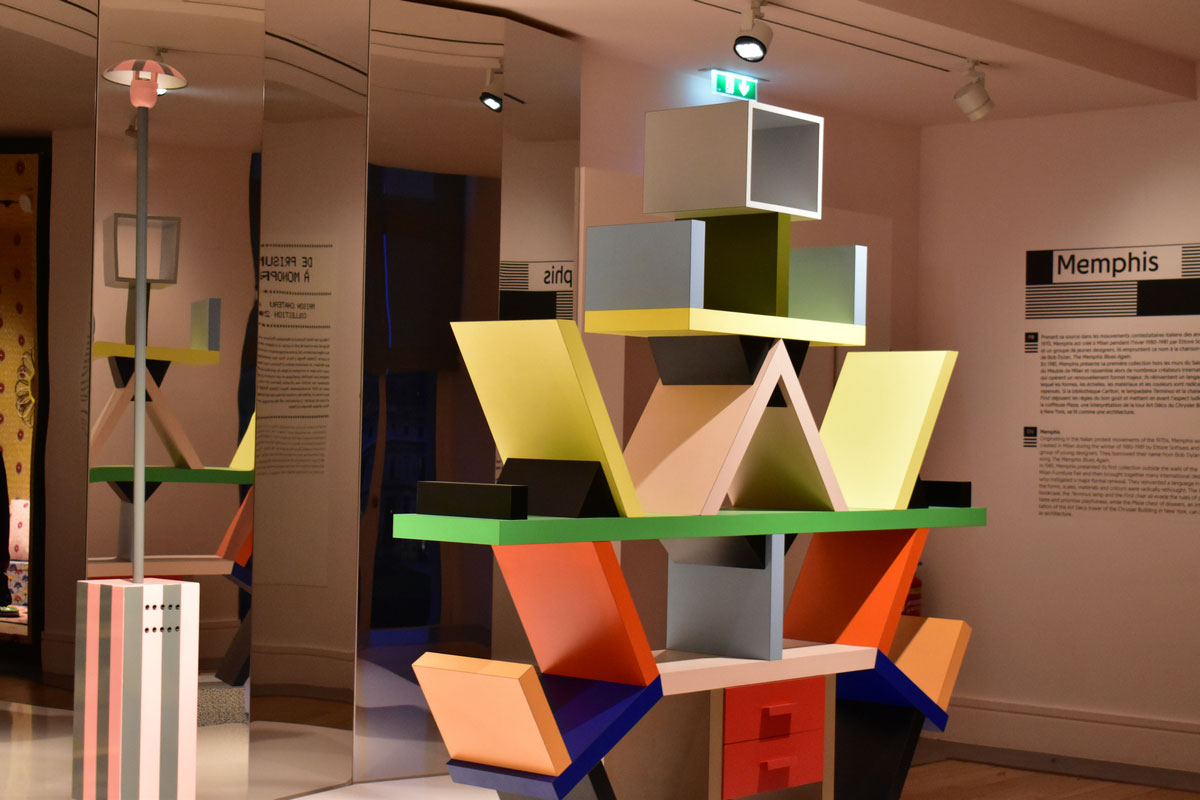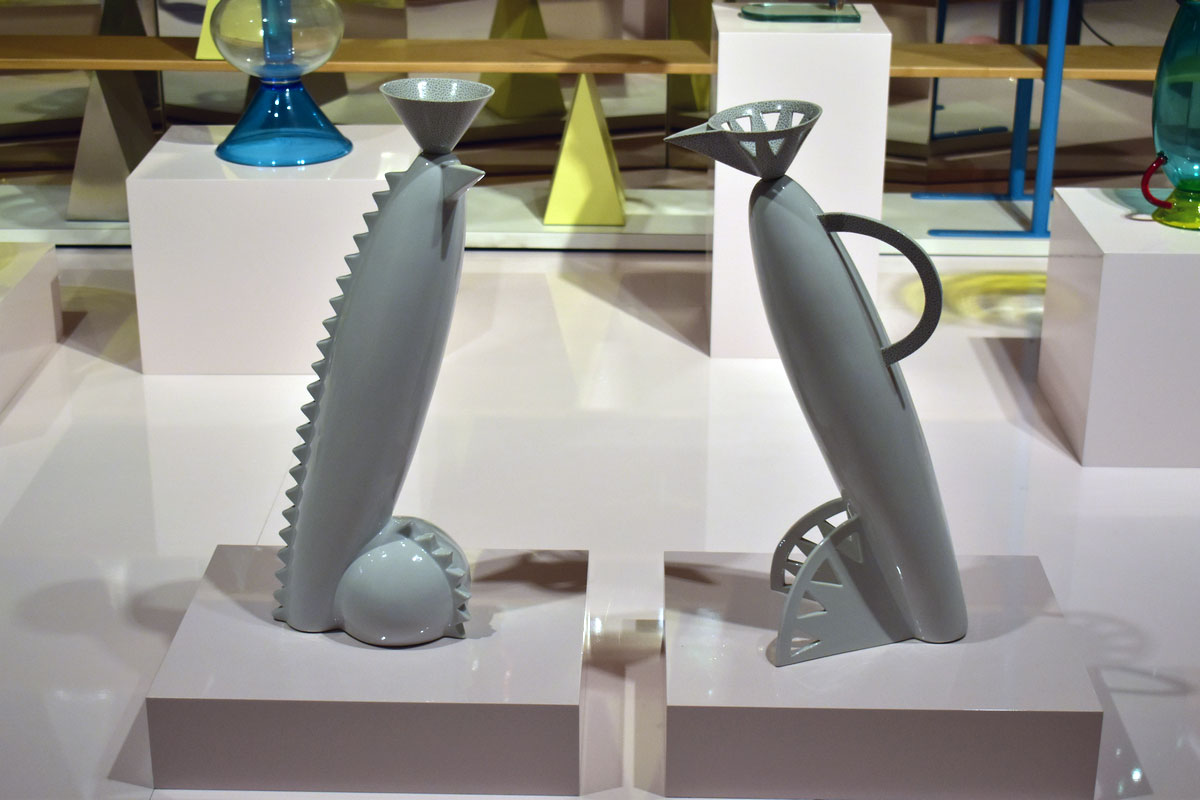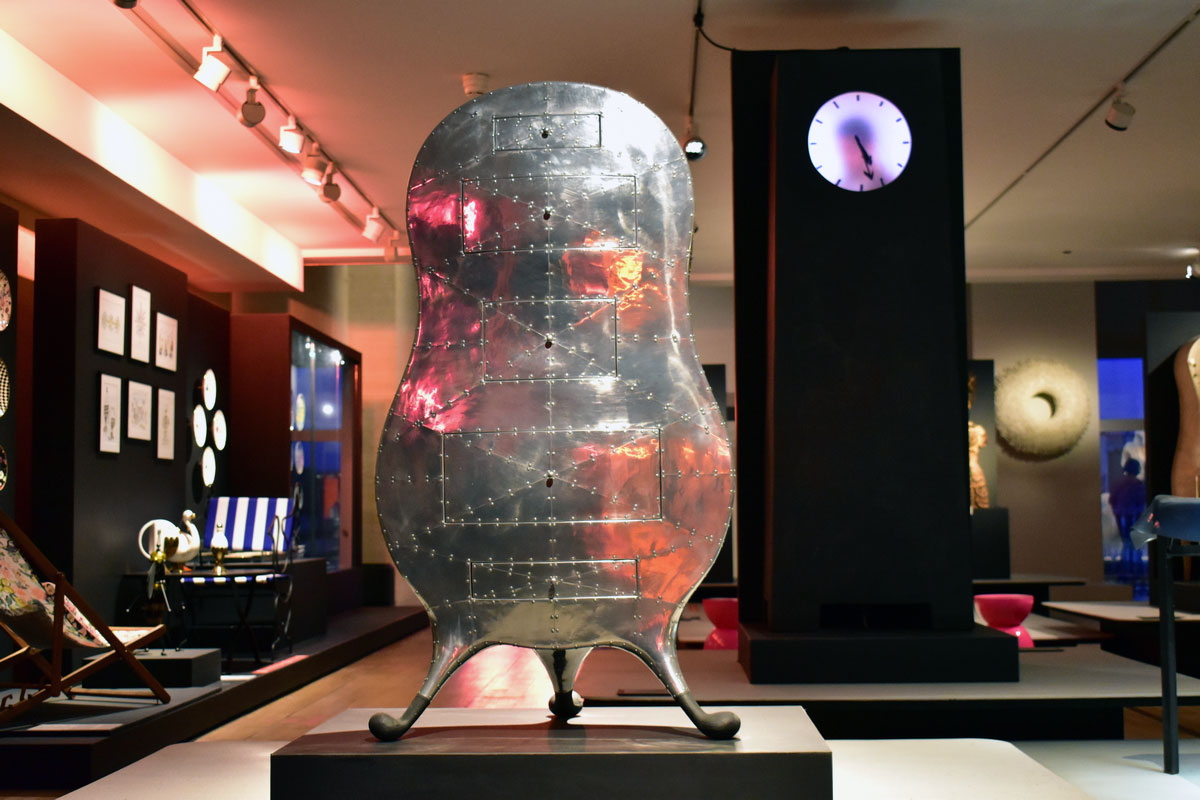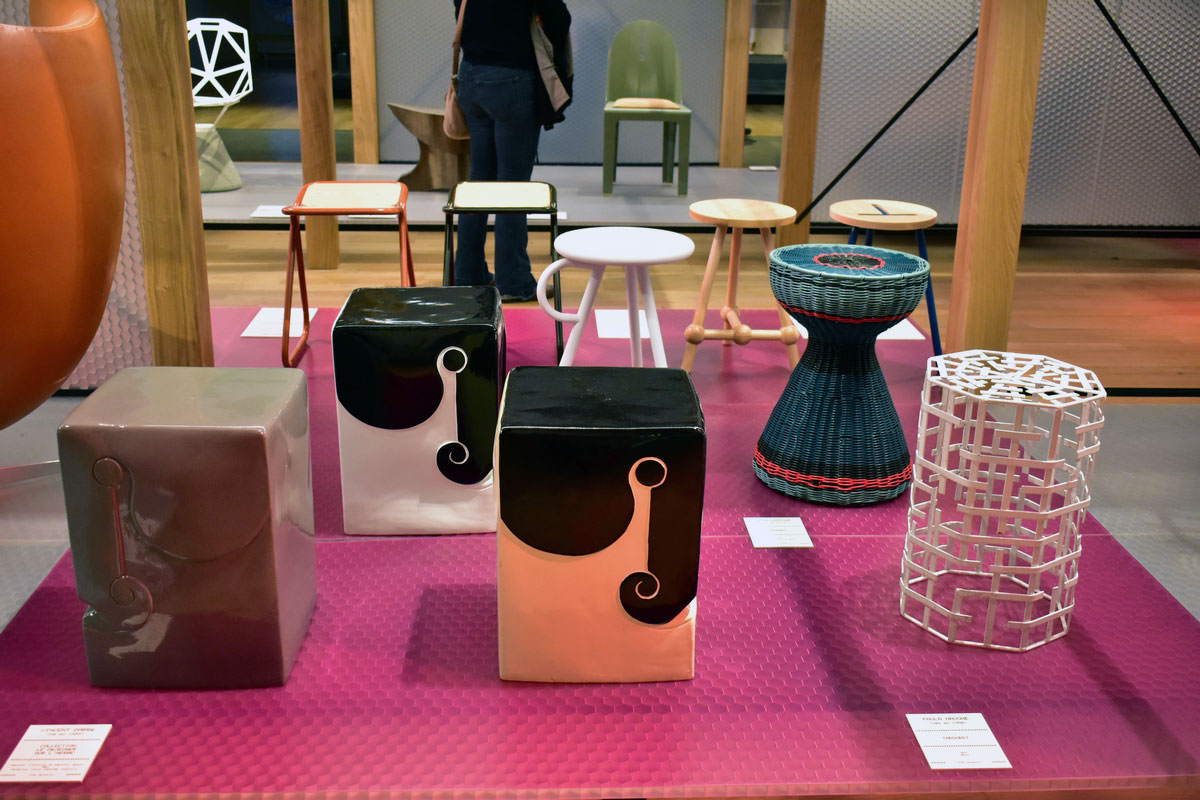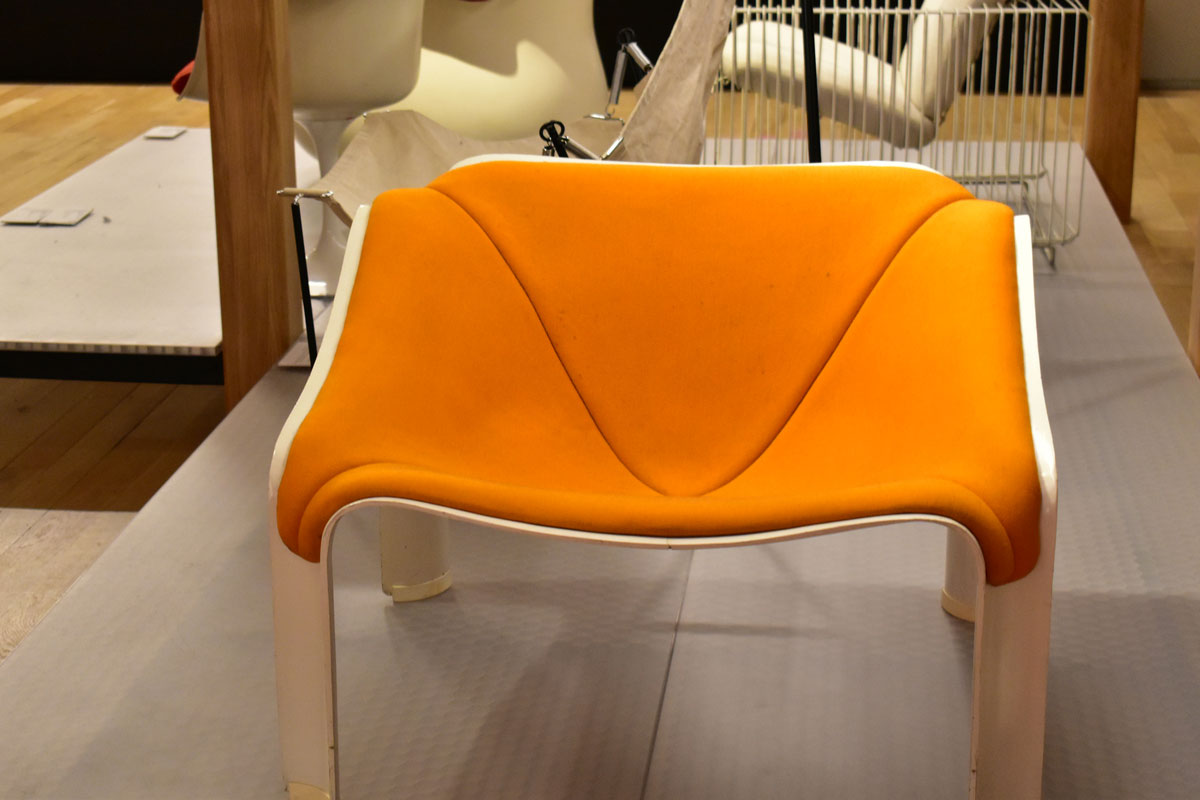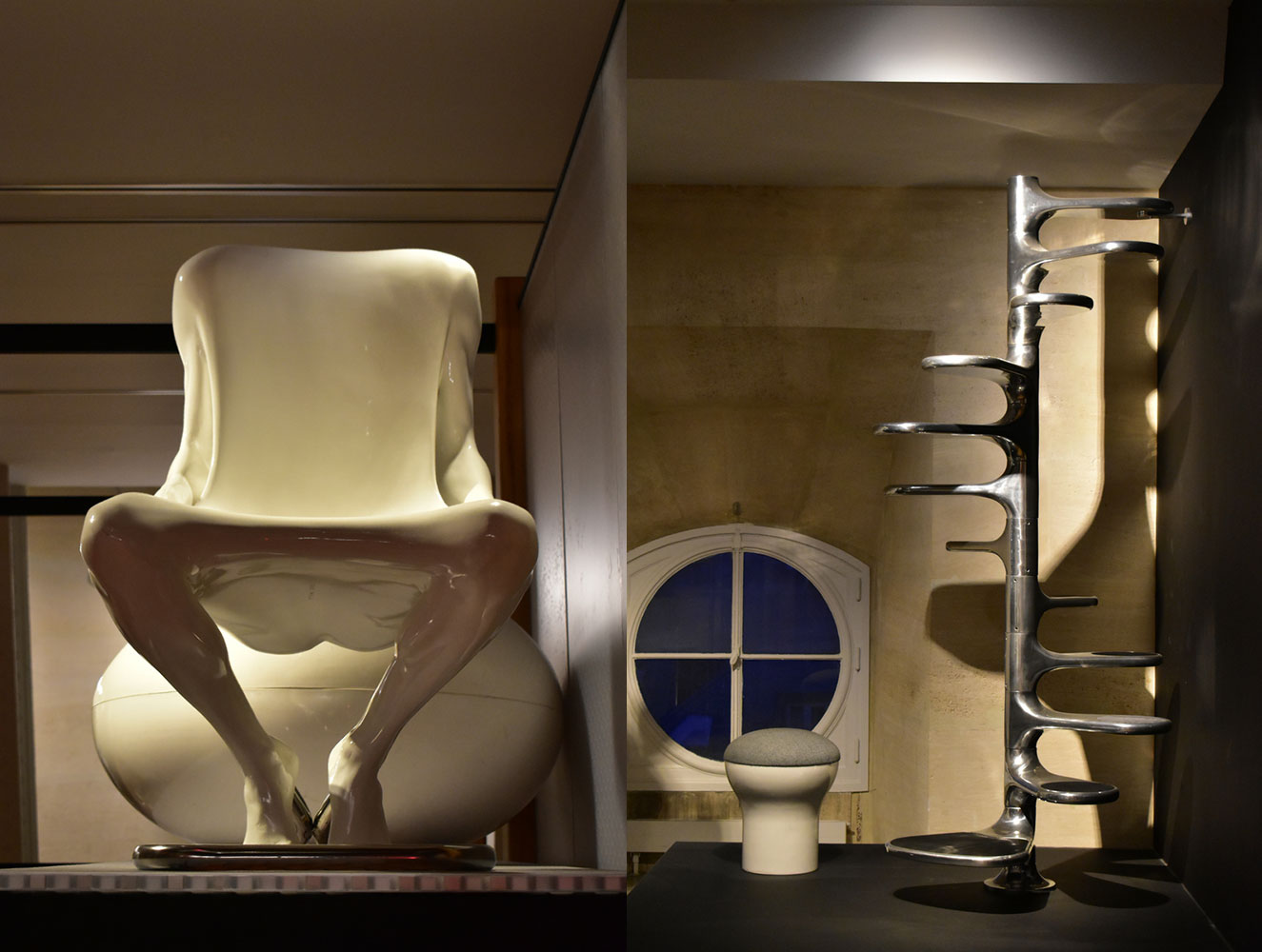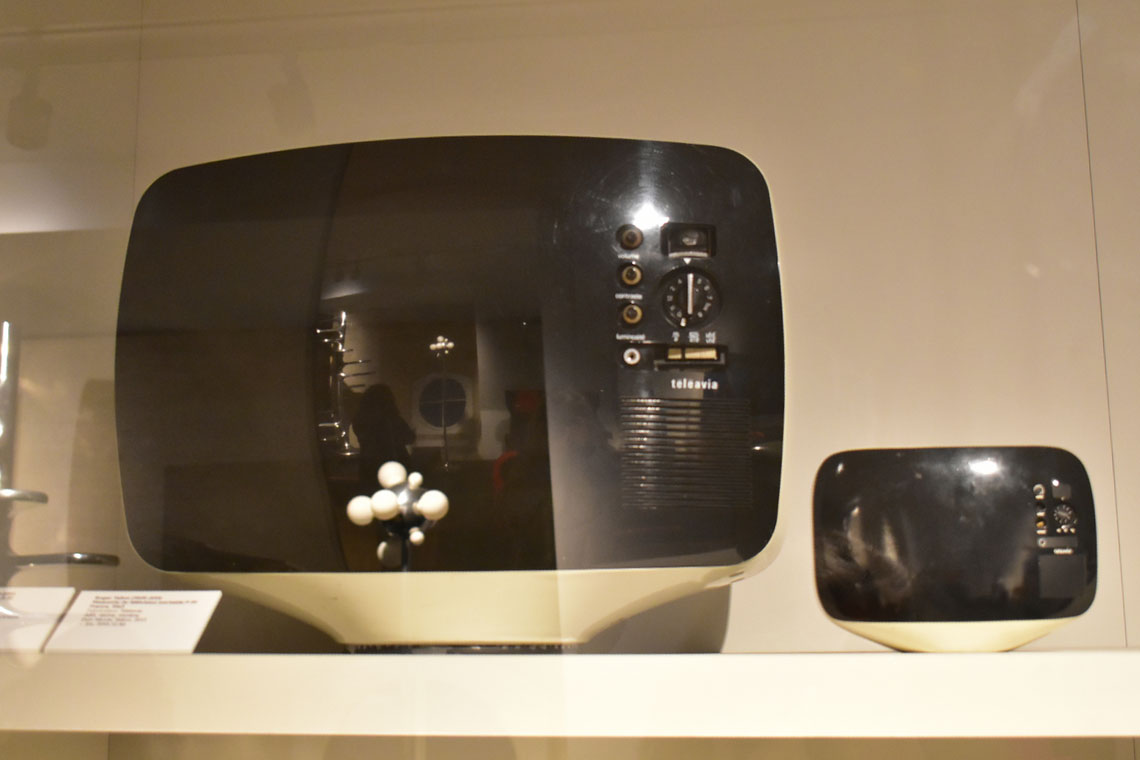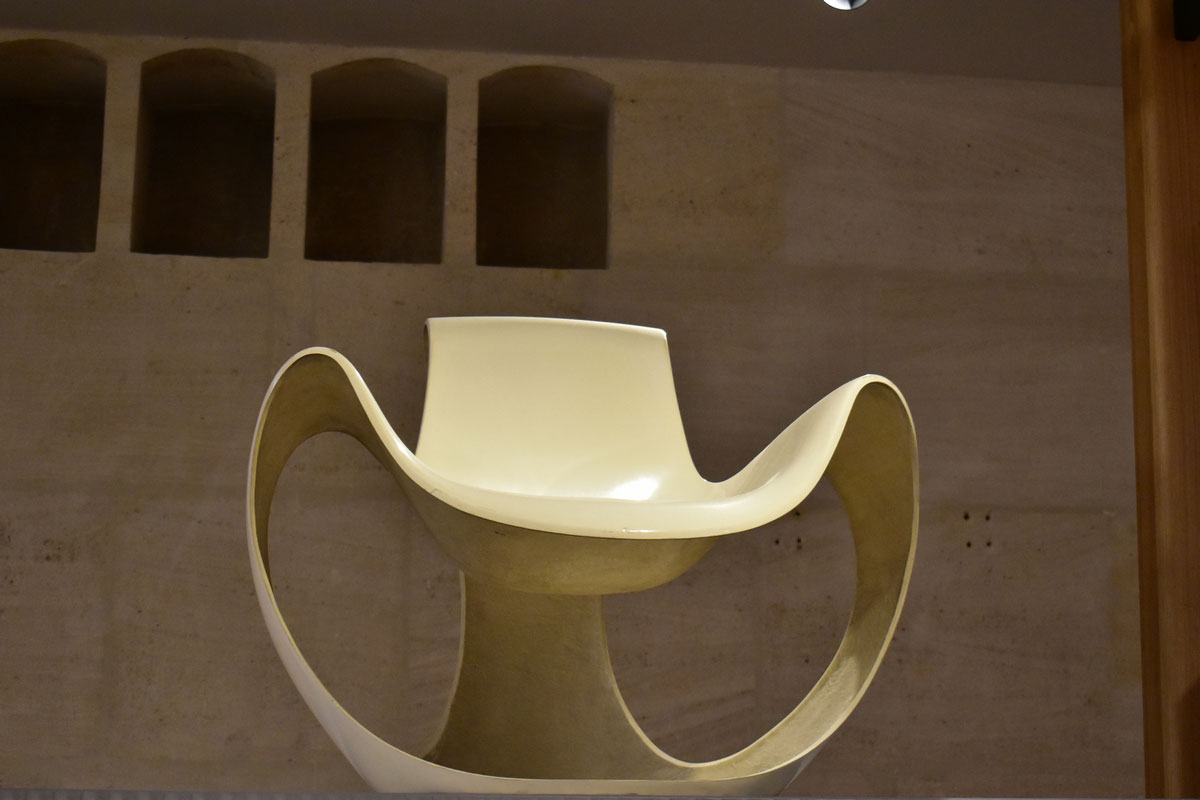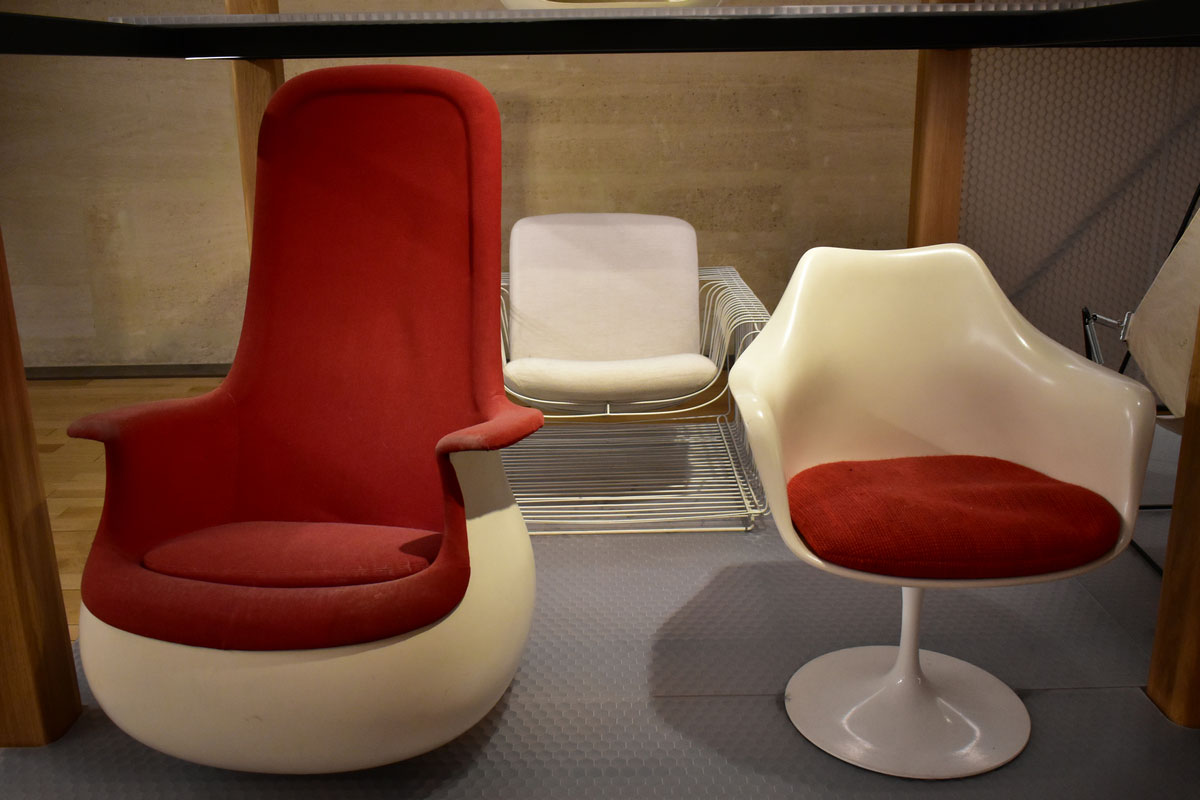DESIGN:Le Design Pour Tous-de Prisunic à Monoprix, Part II
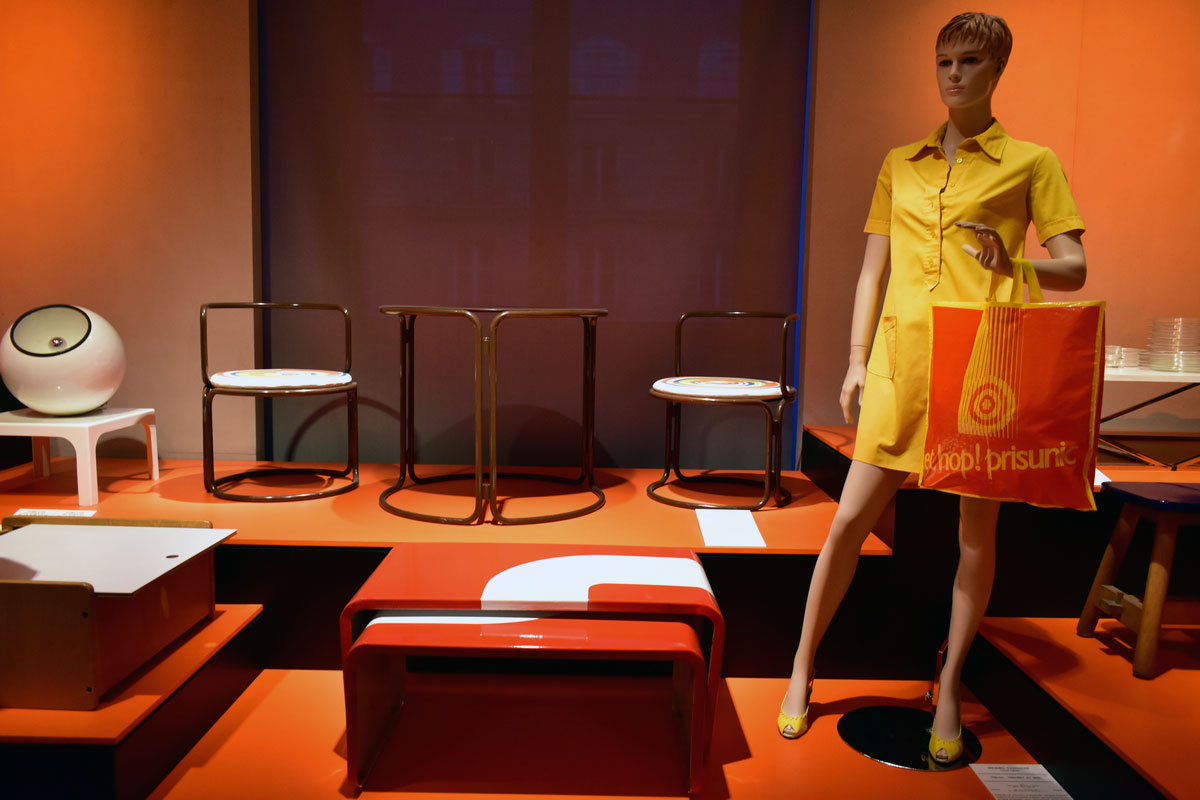 With more than 500 works (furniture, objets and advertising posters) the exhibition “Le Design Pour Tous : de Prisunic à Monoprix, Une Aventure Française” retraces the creative and committed history of these two important French department stores who offered high style designs at affordable prices, summed up in the popular French slogan, “beauty at the price of ugly” (Part I).
With more than 500 works (furniture, objets and advertising posters) the exhibition “Le Design Pour Tous : de Prisunic à Monoprix, Une Aventure Française” retraces the creative and committed history of these two important French department stores who offered high style designs at affordable prices, summed up in the popular French slogan, “beauty at the price of ugly” (Part I).
By Dimitris Lempesis
Photo: Efi Michalarou
The exhibition “Le Design Pour Tous: de Prisunic à Monoprix, Une Aventure Française” highlights collaborations initiated by Prisunic in the 1960s, and continued by Monoprix, with iconic designers such as Terence Conran, Marc Held, Constance Guisset, Ionna Vautrin and India Mahdavi, while showcasing works by some of the most creative graphic designers, photographers, stylists and illustrators of their day including Roman Cieslewicz and Alexis Mabille. Architect and designer India Mahdavi. Founded in 1931 the Prisunic department store followed the American style of marketing introduced in France in 1946 under the leadership of its new Director, Jacques Gueden, who in the 1950s, endeavoured to provide contemporary, quality furniture and fashion at affordable prices. “Prisunic initiated many important collaborations with top designers of the day. Terence Conran participated in the design of the first catalog in 1968, a catalog that skillfully staged furniture, lighting and tableware for a new audience of mail-order consumers. Driven by their shared interest in keeping high style design accessible to all, Prisunic and Monoprix merged in 1997, reaffirming their commitment to keeping “the pleasure of living in the French way” alive for their customers. “Le Design Pour Tous : de Prisunic à Monoprix, Une Aventure Française” is a thematic and chronological exhibition presented in two segments. The journey immediately plunges us into these two contradictory universes, thanks to an original arrangement of store displays, served by a bright and colorful scenography. The visit begins with emblematic designs by Monoprix stylised in gold finish shown through repurposed refrigerators and signed by Marion Lesage, India Mahdavi or Ionna Vautrin. Advertising films and filmed interviews animate the space. The following spaces are converted into period rooms, both by Prisunic, showcasing a period bedroom and living room with simple, accessible, and functional furniture in coloured metal or polyester. Some pieces, such as the molded polyester bed designed by Marc Held in 1970 and the enameled sheet metal furniture created by visual artist Jacques Tissinier in 1973, are held in the permanent collections of the Musée des Arts Décoratifs and have become 1970s-design icons. Further on, entire Prisunic rooms are recreated with period furniture; simple, accessible and functional, designed from colored metal or polyester materials. Commercials, filmed interviews and rare archival documents also litter this unusual trip to the sixties. The Marsan Pavillon also hosts monographs by some of Monoprix’s most emblematic designers, including India Mahdavi, Paola Navone, Ionna Vautrin, Constance Guisset and Nadia Gallardo. Artisanal designs from India and Africa also mingle with the permanent collections, evoking the international scene. In this room, visitors are brought back to their childhood, an important field of exploration for designers, illustrated by children’s clothes and toys from the permanent collections of the Musée des Arts Décoratifs.
Photo: Exhibition view “Le Design Pour Tous : de Prisunic à Monoprix, Une Aventure Française”, Musée des Arts Décoratifs-Paris, 2021-2022, Photo: © & Courtesy Efi Michalarou
Info: Musée des Arts Décoratifs, 107 rue de Rivoli, Paris, France, Duration: 2/12/2021-15/5/2022, Days & Hours: Tue-Wed & Fri 11:00-18:00, Thu 10:00-21:00, Sat-Sun 11:00-20:00, https://madparis.fr/en
